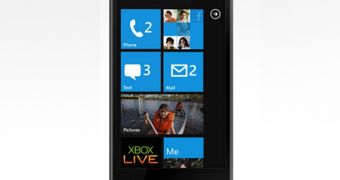Redmond-based software giant Microsoft is getting ready to bring to the market a new mobile operating system, dubbed Windows Phone 7, following the release in October last year of another mobile platform, Windows Mobile 6.5. The first handsets running under Windows Phone 7 should land in the fourth quarter of the ongoing year, following the official introduction of the platform in February during the Mobile World Congress in Barcelona, Spain.
Initially, the WP7 platform was expected to RTM in November last year, with the first handsets running under it to land on shelves during the first quarter of 2010, but things were delayed, much for the disappointment of end-users. Instead of delivering this OS in late 2009, or even sooner, Microsoft released Windows Mobile 6.5, which was not received as well as one might have expected. And it seems that even Microsoft itself understands that it is a little behind schedule.
“We missed a generation with Windows Mobile,” CEO Steve Ballmer said this Monday at Microsoft's Worldwide Partner Conference in Washington, D.C., a recent post on blog.seattlepi.com states. “We really did miss almost a release cycle.” When compared to the competitive solutions available on the market at the moment, WM 6.5 seems ancient, but WP7 should be able to bring the change that most enthusiasts are waiting for.
However, there are also those who suggest that Microsoft might have lost the battle in the mobile space, and this is not the first time we hear this. The company has recently axed two fresh devices, the KIN ONE and KIN TWO social phones, which performed poorly on the market, a move that might have influenced the way in which Microsoft is seen on the mobile market, mobile analyst Azita Arvani stated, according to the blog post.
However, the upcoming Windows Phone 7 OS should include more than what KIN had to offer. With a more appealing user interface packed into the mix, complemented by high-end hardware and enhanced support for various services, the platform has all that it takes to offer the experience rival solutions do, or even a better experience. Of course, that would be known for certain only after the platform's arrival on shelves, and we should wait for the first handsets to be put on sale to see how well did Microsoft manage to get things on the right track.

 14 DAY TRIAL //
14 DAY TRIAL //